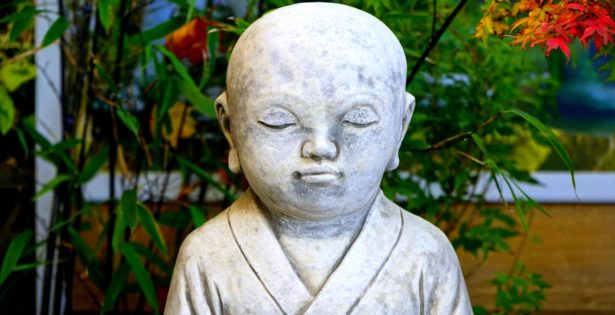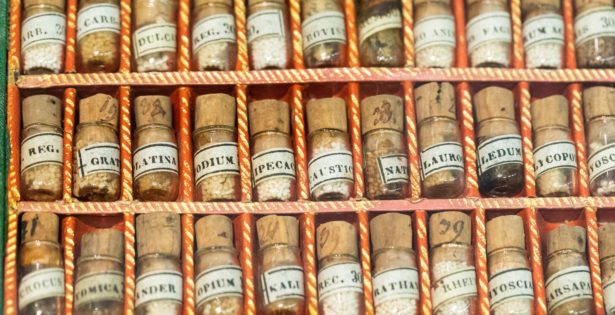WP_Query Object
(
[query] => Array
(
[category__in] => Array
(
[0] => 67
[1] => 23
[2] => 66
[3] => 25
[4] => 65
)
[post__not_in] => Array
(
[0] => 8827
)
[posts_per_page] => 50
[ignore_sticky_posts] => 1
[orderby] => desc
[_shuffle_and_pick] => 3
)
[query_vars] => Array
(
[category__in] => Array
(
[0] => 67
[1] => 23
[2] => 66
[3] => 25
[4] => 65
)
[post__not_in] => Array
(
[0] => 8827
)
[posts_per_page] => 50
[ignore_sticky_posts] => 1
[orderby] => desc
[_shuffle_and_pick] => 3
[error] =>
[m] =>
[p] => 0
[post_parent] =>
[subpost] =>
[subpost_id] =>
[attachment] =>
[attachment_id] => 0
[name] =>
[pagename] =>
[page_id] => 0
[second] =>
[minute] =>
[hour] =>
[day] => 0
[monthnum] => 0
[year] => 0
[w] => 0
[category_name] => creative_living
[tag] =>
[cat] => 67
[tag_id] =>
[author] =>
[author_name] =>
[feed] =>
[tb] =>
[paged] => 0
[meta_key] =>
[meta_value] =>
[preview] =>
[s] =>
[sentence] =>
[title] =>
[fields] =>
[menu_order] =>
[embed] =>
[category__not_in] => Array
(
)
[category__and] => Array
(
)
[post__in] => Array
(
)
[post_name__in] => Array
(
)
[tag__in] => Array
(
)
[tag__not_in] => Array
(
)
[tag__and] => Array
(
)
[tag_slug__in] => Array
(
)
[tag_slug__and] => Array
(
)
[post_parent__in] => Array
(
)
[post_parent__not_in] => Array
(
)
[author__in] => Array
(
)
[author__not_in] => Array
(
)
[search_columns] => Array
(
)
[suppress_filters] =>
[cache_results] => 1
[update_post_term_cache] => 1
[update_menu_item_cache] =>
[lazy_load_term_meta] => 1
[update_post_meta_cache] => 1
[post_type] =>
[nopaging] =>
[comments_per_page] => 50
[no_found_rows] =>
[order] => DESC
)
[tax_query] => WP_Tax_Query Object
(
[queries] => Array
(
[0] => Array
(
[taxonomy] => category
[terms] => Array
(
[0] => 67
[1] => 23
[2] => 66
[3] => 25
[4] => 65
)
[field] => term_id
[operator] => IN
[include_children] =>
)
)
[relation] => AND
[table_aliases:protected] => Array
(
[0] => wp_term_relationships
)
[queried_terms] => Array
(
[category] => Array
(
[terms] => Array
(
[0] => 67
[1] => 23
[2] => 66
[3] => 25
[4] => 65
)
[field] => term_id
)
)
[primary_table] => wp_posts
[primary_id_column] => ID
)
[meta_query] => WP_Meta_Query Object
(
[queries] => Array
(
)
[relation] =>
[meta_table] =>
[meta_id_column] =>
[primary_table] =>
[primary_id_column] =>
[table_aliases:protected] => Array
(
)
[clauses:protected] => Array
(
)
[has_or_relation:protected] =>
)
[date_query] =>
[request] =>
SELECT SQL_CALC_FOUND_ROWS wp_posts.ID
FROM wp_posts LEFT JOIN wp_term_relationships ON (wp_posts.ID = wp_term_relationships.object_id)
WHERE 1=1 AND wp_posts.ID NOT IN (8827) AND (
wp_term_relationships.term_taxonomy_id IN (23,25,65,66,67)
) AND ((wp_posts.post_type = 'post' AND (wp_posts.post_status = 'publish' OR wp_posts.post_status = 'acf-disabled')))
AND ID NOT IN
(SELECT `post_id` FROM wp_postmeta
WHERE `meta_key` = '_pilotpress_level'
AND `meta_value` IN ('','employee')
AND `post_id` NOT IN
(SELECT `post_id` FROM wp_postmeta
WHERE `meta_key` = '_pilotpress_level'
AND `meta_value` IN ('' )))
GROUP BY wp_posts.ID
ORDER BY wp_posts.post_date DESC
LIMIT 0, 50
[posts] => Array
(
[0] => WP_Post Object
(
[ID] => 8656
[post_author] => 3
[post_date] => 2022-05-05 20:14:03
[post_date_gmt] => 2022-05-05 20:14:03
[post_content] =>
There’s a well-known spiritual quote from philosopher and teacher Jiddhu Krishnamurti. The story goes that he was speaking to a group of students (who saw him as an enlightened master), and he whispered, “Do you want to know my secret?” At this, the room fell silent and everyone leaned forward. Then he continued, “I don’t mind what happens.”
What I like about this idea is that it’s simple; it speaks of a state of transcendence of the ego and unshakable peace. But as an expression of absolute spiritual truth, it also lends itself to spiritual bypassing and illusions about spirituality.
The tricky thing about Krishnamurti’s statement is that he was presumably speaking not from his ego but from an expanded state of consciousness, his higher Self. Thus, while not minding what happens was his outlook from this state, it’s not necessarily the path that got him there.
In Krishnamurti’s case, he went through a series of spontaneous, often painful experiences over many years that caused an opening of his consciousness. That’s not something we can replicate at will. So what can we garner from this “secret”?
It’s a good opening to a discussion on how we relate to absolute spiritual truths while existing in a world of relativity. Even among non-dual spiritual traditions (meaning, all the world is considered to be an expression of one great Being, and separation is an illusion), there is often a distinction made between the Source in an absolute sense (which is formless) and the many forms it takes in the relative world.
In the realm of the relative, which is where the majority of human minds dwell, relativity directs nearly every aspect of our lives. For instance, when we say something is good, we’re usually not coming from the experience that the universe is fundamentally Good, and therefore all of its expressions are imbued with that same essence of goodness. What we mean is that things are good relative to some other way they could be. Thus, we’re directed toward things that we perceive as better than our other options and away from things that seem worse. And absolute spiritual truths – like “the universe is fundamentally good” – are simply lofty concepts to most people. We do get glimpses of them though (as I’ve written about in my articles on “gaps” in the dominant egocentric state), and these often fuel a drive for spiritual awakening.
People who have gone through a certain form of spiritual awakening (what’s sometimes referred to as enlightenment, liberation, or moksha) often describe it as an experience of becoming perpetually conscious of the absolute. This doesn’t make the relative disappear, but the awareness of the undying oneness that unifies all apparent differences enables them to play in relativity without the “high stakes” feeling – and the anxiousness and drama that go with it – that most humans experience. This is why it’s referred to as liberation, which can be a very appealing notion to anyone who wants to be happy.
So, apparently from this state, Krishnamurti said, “I don’t mind what happens” because, in an absolute sense, nothing is ever wrong. Nor is there such a thing as tragedy or victory. To win a race just means one part of the Source crossed the finish line before another part of the same Source (or God beat God, if you prefer that name). Likewise, the death of any given expression of the Source is akin to a red blood cell dying and being recycled into a new blood cell; the Whole has lost nothing in the process.
It's important to recognize that an absolute spiritual truth is different from an uplifting life principle or a good piece of advice. If someone told you their “secret” is “Focus on the good” or “Don’t sweat the small stuff” or “Practice gratitude” or “Don’t take anything personally” you could immediately adopt it and start living it. But to a person who hasn’t realized and directly experienced it, an absolute truth isn’t actionable in the same way. And in relative terms, the absolute may make no sense at all.
Imagine that a dog is biting your leg and you think to yourself, “I’m going to be spiritual about this. What did Krishnamurti say? Oh yeah, I don’t mind what happens. I guess I’d better breathe through this. Whew, that’s a lot of blood. Do I just let him keep gnawing? I don’t mind. I don’t mind. I don’t mind. If I call 9-1-1, does that constitute “minding”?” I doubt many people would take an unrealized spiritual truth to this extent, but as you can imagine, it’s possible to get into some trouble this way.
Next week we’ll try to find the usefulness in statements of absolute truth and we’ll talk about what to do if you do mind what happens. Meanwhile, I always love to hear what readers think of these philosophical explorations.
Be well,
Peter
[post_title] => Can We be Misguided by Spiritual Truths?
[post_excerpt] =>
[post_status] => publish
[comment_status] => open
[ping_status] => open
[post_password] =>
[post_name] => can-we-be-misguided-by-spiritual-truths
[to_ping] =>
[pinged] =>
[post_modified] => 2022-05-05 20:14:03
[post_modified_gmt] => 2022-05-05 20:14:03
[post_content_filtered] =>
[post_parent] => 0
[guid] => https://thedragontree.com/?p=8656
[menu_order] => 0
[post_type] => post
[post_mime_type] =>
[comment_count] => 0
[filter] => raw
[webinar_id] => 0
)
[1] => WP_Post Object
(
[ID] => 8864
[post_author] => 3
[post_date] => 2022-11-25 21:46:31
[post_date_gmt] => 2022-11-25 21:46:31
[post_content] =>
No matter where you are on your journey, the Dragontree candle collection offers an inspiring tool to help light the way. Our new candles are thoughtfully designed and hand-crafted with intention and quality ingredients.
We. Love. Candles. As owners of spas and teachers of ritual, we go through a LOT of candles. Think of a big number and multiply it by a zillion – that’s how many candles we burn. A day.
There are plenty of things we love about candles, but the central reason we use them is to bring the Fire Element into our space.
From the beginning of recorded time, fire has been a powerful symbol and a central part of our lives. Our relationship to it is embedded deep in our collective consciousness.
Fire’s light and warmth has long been a source of comfort and safety, and has been used to initiate rituals, to carry prayers, to promote transformation, to celebrate our connection with each other, and to remember and honor the light of awareness that unites us and transcends the mundane.
For millennia we tended fires and gazed into flames on a daily basis, which facilitated a gentle meditative state in which we readily let go of our troubles and became realigned. Deprived of that routine, we find ourselves habitually staring at glowing screens instead . . . an inferior replacement that tends to have the opposite effect on us.
The moment we light a candle, it shifts our consciousness. It takes us out of the whirlwind and brings us back into the present moment.
Every detail of our Dragontree candles was painstakingly considered to ensure they’d be inspiring, supportive, and simply the best candles we’ve ever used.
Why they’re so great:
- Made with 100% beeswax
- Higher melting point so they emit the cleanest, brightest flame
- Cleanest burning wax produces no soot or toxic chemicals
- Releases negative ions into the air, helps purify and elevate sacred spaces
- The dense composition of beeswax burns slower and lasts longer than other candles
- Individually hand poured by craftspeople in Cape Cod.
- Presented in a luxurious box with gold foil lettering – perfect for gifting
- Made with natural essential oils for an aromatherapeutic – but never overpowering or perfumy – experience
- Poured in beautiful glass vessels imprinted with an affirmation
- Vessels can be reused as an elegant pen holder, vase, or a hundred other uses
- Ethically and sustainably created
- No dyes, additives, or parabens
- 3"D x 3.5"H
- 8 oz.
- Up to 50 hours burn time
- Made in the USA
Why not paraffin, soy, or palm wax?
Paraffin is a byproduct of the petroleum industry, and burning paraffin candles releases toxic compounds into your living space, including known carcinogens. Soy wax comes from soybeans, 96% of which are genetically modified to tolerate application of the pesticide Roundup. We don’t want to contribute to the soy industry and its ecological impacts. Palm wax comes from palm plantations which require massive-scale deforestation, endangering orangutans and other species, and contributing to climate change. Beeswax, in contrast, requires raising millions of healthy bees, which pollinate our crops and are a vital link in the ecosystem.
You Are Sacred
This elegant and soulful candle comes in a glossy black tumbler that is imprinted with a simple but powerful reminder: You Are Sacred. We know how easy it is for this crazy human ride to make you forget, to make you feel small and powerless. But that’s not who you really are. Remember? You Are Sacred. You are an expression of your Highest Self. You are a conscious creator. You can choose in every moment how to embody this sacredness. Light it daily before meditation, journaling, setting an intention, starting your day, or anytime you need some sacred space to get through a negative experience.
The spicy, earthy notes of Cardamon, Vetiver, and Cedarwood mix with the bright, clear scent of Cypress and Pine, and the addition of Amyris highlights the soft woodsy aroma with the slightest hint of sweetness. This custom scent was blended to foster a calm sense of wellbeing and connect you to the sacred spaces found in nature .
Our You Are Sacred candle makes a thoughtful gift for loved ones to show them you recognize their scaredness and want to be a part of their challenges, healing, and growth.
Be The Light
This bright and joyful candle is hand poured into a reflective white glass vessel and speaks to a powerful choice that is always available: “Be The Light” in noble gold lettering. This simple, yet life-changing statement reminds you there is a light within and your job is to let it shine into the world. Just as one candle can be used to light another, your light – pouring through your heart, your smile, your hands, giving purpose to your every task – sparks the light in others.
Be The Light means not just shining outward, but also inward. In order to be effective beacons in the world, we must not withhold light from any part of ourselves. Being the light means accepting and integrating all that we are. In a world with plenty of darkness, there is no service greater than being an embodiment of light, uplifting those around you and affirming that lightness is their true nature.
The fresh, cleansing fragrance of Sage and Pine blends artfully with soothing notes of Lavender and Vanilla and creates a sensory experience that supports emotional balance, blocks negative energies, and purifies your sacred space.
Brighten someone’s day by gifting them this lovely affirmation. It serves as a daily prompt and lets them know that you recognize their light and are warmed and inspired by knowing them.
Click here to check out our new candles!
[post_title] => We. Love. Candles.
[post_excerpt] =>
[post_status] => publish
[comment_status] => open
[ping_status] => open
[post_password] =>
[post_name] => we-love-candles
[to_ping] =>
[pinged] =>
[post_modified] => 2022-11-25 22:13:55
[post_modified_gmt] => 2022-11-25 22:13:55
[post_content_filtered] =>
[post_parent] => 0
[guid] => https://thedragontree.com/?p=8864
[menu_order] => 0
[post_type] => post
[post_mime_type] =>
[comment_count] => 0
[filter] => raw
[webinar_id] => 0
)
[2] => WP_Post Object
(
[ID] => 8692
[post_author] => 3
[post_date] => 2022-06-29 19:15:20
[post_date_gmt] => 2022-06-29 19:15:20
[post_content] =>
It was my birthday party in May and before we all started eating, Briana asked if I wanted to say something to my guests. Unbeknownst to them, I had been feeling a nauseous gurgling in my guts all day, so I was trying to hold it together and was caught a bit off guard. But I looked around at this group of shining faces and said the first words that came to me: “Community is medicine. Thank you for being here.” And that was enough.
Immersion in loving community is deeply fortifying, supportive, and uplifting. Studies show that when a suffering person holds someone’s hand, their suffering is reduced. I think the same is true of metaphorically holding many hands through community engagement. And while it’s therapeutic to be seen and held in our challenges, there’s also value in the way that being oriented to our community gives us a break from self-scrutiny and self-indulgence.
Like eating green vegetables or meditating, sometimes we can forget to prioritize community when we’re busy or immersed in a personal struggle. But as some wise person once said, our community is like our muscles. Besides supporting and empowering us, they need to be engaged regularly in order to stay strong. If you neglect your muscles, they get flabby. If you neglect your community, they probably won’t turn their backs on you, but for numerous reasons they won’t be able to support you as well as they could.
From our book, The Well Life, here are some actions you can take to mindfully build your community:
- Ask people for help – whether it be in your garden, with your taxes, or finding a great preschool. Learn what gifts and wisdom those around you have and give them opportunities to share.
- Be involved. Go to local meetings. Participate. Know your community’s plans for the future – and how you fit into them.
- Know the names of people you see often – the grocery cashier, the gas station attendant, the school principal, the guy who takes the same bus as you every day. Allow them to be real people in your life.
- Make eye contact with the humans you pass on the street. Be the one who says “Hi!” first.
- Protect the green spaces.
- Fix something that’s broken – a neighbor’s fence, your niece’s bike, the librarian’s flat tire.
- Support local businesses – even if it costs a little more.
- Learn about others’ traditions and celebrate together. Look for local festivals to attend, even if they’re for an event you wouldn’t normally observe.
- Stick up for someone – a disadvantaged person or population, someone being mistreated or disrespected, or someone who’s unable to stand up for themselves.
- Be curious. Attend lectures at the library, senior center, or local university, check out a high school science fair, and – foremost – learn what cool stuff people are up to in your town. What are people building? What are they learning? Who can tell you about the history of this place?
I want everyone to have the experience of being part of a healthy, loving, supportive community. I hope you’ll engage with your community today and be reminded of how nourishing it is.
Be well,
Peter
[post_title] => Community is Medicine
[post_excerpt] =>
[post_status] => publish
[comment_status] => open
[ping_status] => open
[post_password] =>
[post_name] => community-is-medicine
[to_ping] =>
[pinged] =>
[post_modified] => 2022-06-29 20:03:12
[post_modified_gmt] => 2022-06-29 20:03:12
[post_content_filtered] =>
[post_parent] => 0
[guid] => https://thedragontree.com/?p=8692
[menu_order] => 0
[post_type] => post
[post_mime_type] =>
[comment_count] => 0
[filter] => raw
[webinar_id] => 0
)
)
[post_count] => 3
[current_post] => -1
[before_loop] => 1
[in_the_loop] =>
[post] => WP_Post Object
(
[ID] => 8656
[post_author] => 3
[post_date] => 2022-05-05 20:14:03
[post_date_gmt] => 2022-05-05 20:14:03
[post_content] =>
There’s a well-known spiritual quote from philosopher and teacher Jiddhu Krishnamurti. The story goes that he was speaking to a group of students (who saw him as an enlightened master), and he whispered, “Do you want to know my secret?” At this, the room fell silent and everyone leaned forward. Then he continued, “I don’t mind what happens.”
What I like about this idea is that it’s simple; it speaks of a state of transcendence of the ego and unshakable peace. But as an expression of absolute spiritual truth, it also lends itself to spiritual bypassing and illusions about spirituality.
The tricky thing about Krishnamurti’s statement is that he was presumably speaking not from his ego but from an expanded state of consciousness, his higher Self. Thus, while not minding what happens was his outlook from this state, it’s not necessarily the path that got him there.
In Krishnamurti’s case, he went through a series of spontaneous, often painful experiences over many years that caused an opening of his consciousness. That’s not something we can replicate at will. So what can we garner from this “secret”?
It’s a good opening to a discussion on how we relate to absolute spiritual truths while existing in a world of relativity. Even among non-dual spiritual traditions (meaning, all the world is considered to be an expression of one great Being, and separation is an illusion), there is often a distinction made between the Source in an absolute sense (which is formless) and the many forms it takes in the relative world.
In the realm of the relative, which is where the majority of human minds dwell, relativity directs nearly every aspect of our lives. For instance, when we say something is good, we’re usually not coming from the experience that the universe is fundamentally Good, and therefore all of its expressions are imbued with that same essence of goodness. What we mean is that things are good relative to some other way they could be. Thus, we’re directed toward things that we perceive as better than our other options and away from things that seem worse. And absolute spiritual truths – like “the universe is fundamentally good” – are simply lofty concepts to most people. We do get glimpses of them though (as I’ve written about in my articles on “gaps” in the dominant egocentric state), and these often fuel a drive for spiritual awakening.
People who have gone through a certain form of spiritual awakening (what’s sometimes referred to as enlightenment, liberation, or moksha) often describe it as an experience of becoming perpetually conscious of the absolute. This doesn’t make the relative disappear, but the awareness of the undying oneness that unifies all apparent differences enables them to play in relativity without the “high stakes” feeling – and the anxiousness and drama that go with it – that most humans experience. This is why it’s referred to as liberation, which can be a very appealing notion to anyone who wants to be happy.
So, apparently from this state, Krishnamurti said, “I don’t mind what happens” because, in an absolute sense, nothing is ever wrong. Nor is there such a thing as tragedy or victory. To win a race just means one part of the Source crossed the finish line before another part of the same Source (or God beat God, if you prefer that name). Likewise, the death of any given expression of the Source is akin to a red blood cell dying and being recycled into a new blood cell; the Whole has lost nothing in the process.
It's important to recognize that an absolute spiritual truth is different from an uplifting life principle or a good piece of advice. If someone told you their “secret” is “Focus on the good” or “Don’t sweat the small stuff” or “Practice gratitude” or “Don’t take anything personally” you could immediately adopt it and start living it. But to a person who hasn’t realized and directly experienced it, an absolute truth isn’t actionable in the same way. And in relative terms, the absolute may make no sense at all.
Imagine that a dog is biting your leg and you think to yourself, “I’m going to be spiritual about this. What did Krishnamurti say? Oh yeah, I don’t mind what happens. I guess I’d better breathe through this. Whew, that’s a lot of blood. Do I just let him keep gnawing? I don’t mind. I don’t mind. I don’t mind. If I call 9-1-1, does that constitute “minding”?” I doubt many people would take an unrealized spiritual truth to this extent, but as you can imagine, it’s possible to get into some trouble this way.
Next week we’ll try to find the usefulness in statements of absolute truth and we’ll talk about what to do if you do mind what happens. Meanwhile, I always love to hear what readers think of these philosophical explorations.
Be well,
Peter
[post_title] => Can We be Misguided by Spiritual Truths?
[post_excerpt] =>
[post_status] => publish
[comment_status] => open
[ping_status] => open
[post_password] =>
[post_name] => can-we-be-misguided-by-spiritual-truths
[to_ping] =>
[pinged] =>
[post_modified] => 2022-05-05 20:14:03
[post_modified_gmt] => 2022-05-05 20:14:03
[post_content_filtered] =>
[post_parent] => 0
[guid] => https://thedragontree.com/?p=8656
[menu_order] => 0
[post_type] => post
[post_mime_type] =>
[comment_count] => 0
[filter] => raw
[webinar_id] => 0
)
[comment_count] => 0
[current_comment] => -1
[found_posts] => 319
[max_num_pages] => 7
[max_num_comment_pages] => 0
[is_single] =>
[is_preview] =>
[is_page] =>
[is_archive] => 1
[is_date] =>
[is_year] =>
[is_month] =>
[is_day] =>
[is_time] =>
[is_author] =>
[is_category] => 1
[is_tag] =>
[is_tax] =>
[is_search] =>
[is_feed] =>
[is_comment_feed] =>
[is_trackback] =>
[is_home] =>
[is_privacy_policy] =>
[is_404] =>
[is_embed] =>
[is_paged] =>
[is_admin] =>
[is_attachment] =>
[is_singular] =>
[is_robots] =>
[is_favicon] =>
[is_posts_page] =>
[is_post_type_archive] =>
[query_vars_hash:WP_Query:private] => d9bed24e7e41261017faea0ef76a1f58
[query_vars_changed:WP_Query:private] =>
[thumbnails_cached] =>
[allow_query_attachment_by_filename:protected] =>
[stopwords:WP_Query:private] =>
[compat_fields:WP_Query:private] => Array
(
[0] => query_vars_hash
[1] => query_vars_changed
)
[compat_methods:WP_Query:private] => Array
(
[0] => init_query_flags
[1] => parse_tax_query
)
)



 Cart
Cart














